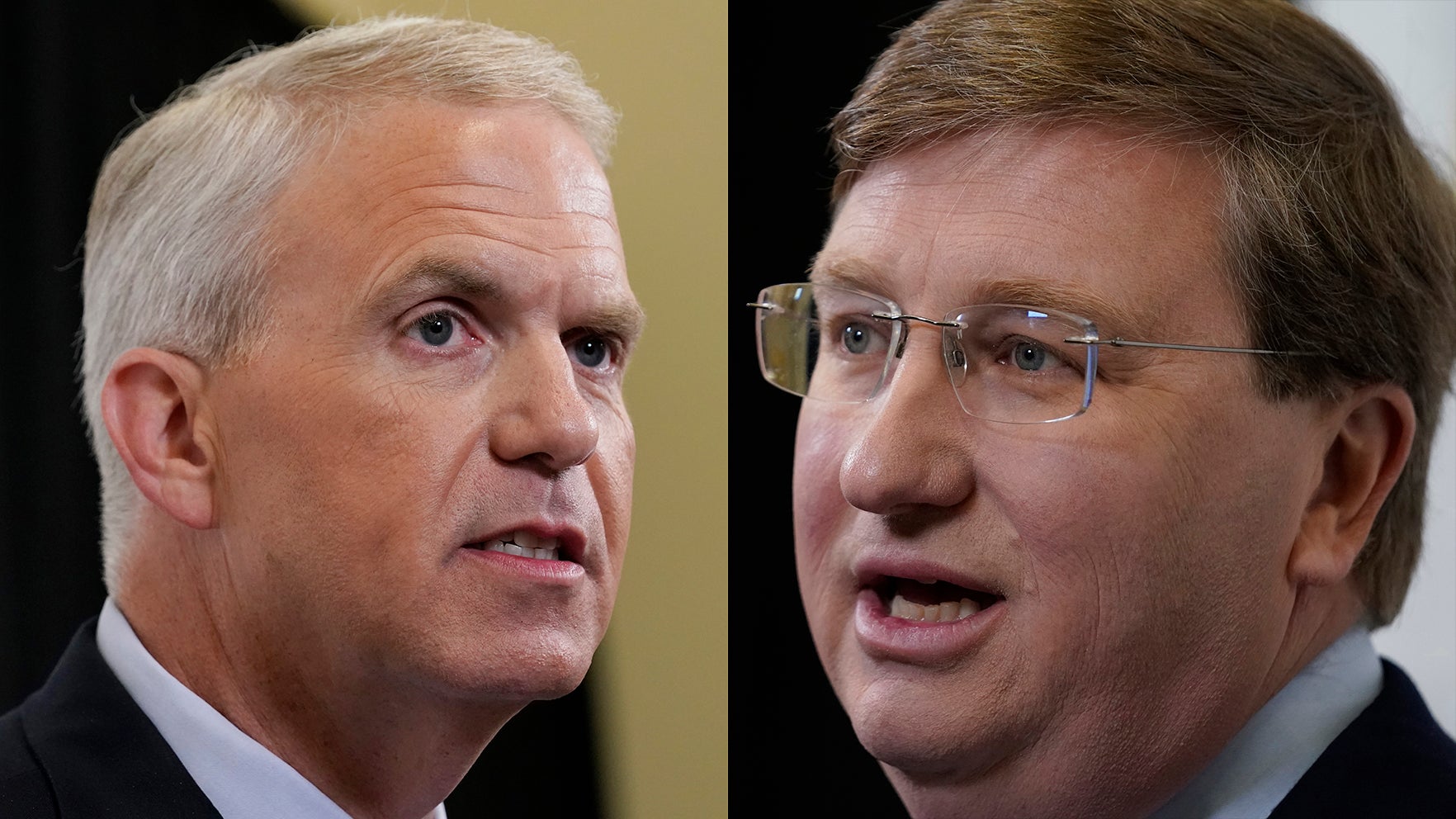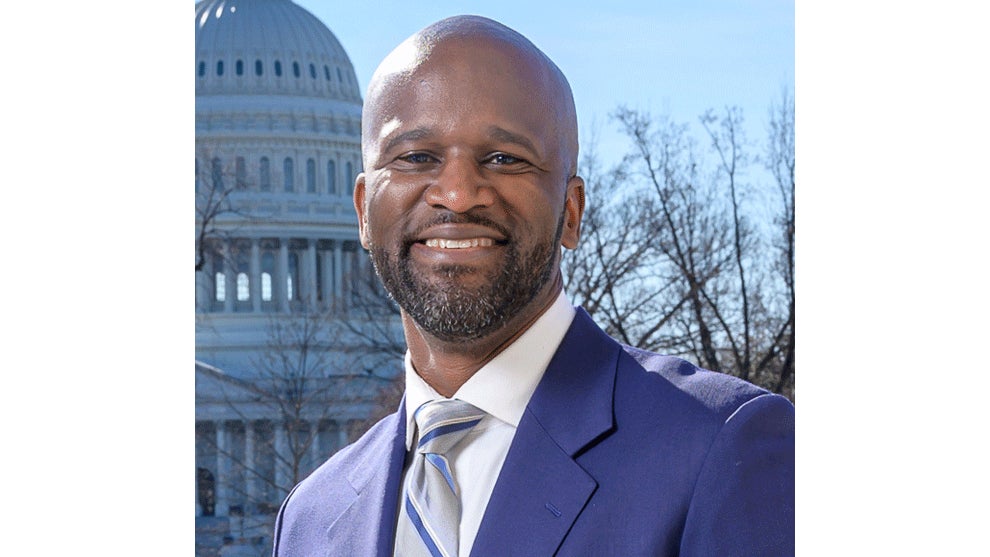GOP lays out Mississippi Senate race strategy: Paint Baria as a liberal, Espy as corrupt
Published 12:08 pm Tuesday, July 3, 2018
From Mississippi Today
JACKSON — With the primaries officially in the rear view and a Republican majority in the U.S. Senate on the line, Mississippi Republicans have begun rolling out their strategy against two formidable Democratic Senate candidates.
Lucien Smith, chairman of the Mississippi Republican Party, laid out the tenets of that strategy in an interview on “The Jungle,” Mississippi Today’s election podcast. Smith, who took the reins of the party earlier this year, believes it’s key to convince voters that sending either state Rep. David Baria or former cabinet Secretary Mike Espy to the Senate would jeopardize the agenda of President Donald Trump, who remains popular in Mississippi.
“If we allow infighting and a Democrat is elected here, there’s a good possibility that good policy the president is proposing could still pass the House but be stopped in a Chuck Schumer-run Senate,” Smith said, referring to the New York senator who would likely ascend to majority leader should his party take control. “I don’t think Republicans are going to allow that to happen.”
Smith, in the interview, talked specifically about much of the party’s strategy behind ensuring both incumbent Republican senators — Roger Wicker and Cindy Hyde-Smith —are re-elected in November.
“You had David running (in the primary) very clearly as a liberal. Democrats used to run in Mississippi and say, ‘I’m a different kind of Democrat. I’m a Mississippi Democrat. I don’t support President Obama or Hillary Clinton.’ David is running a very clear, progressive, liberal race. I don’t think that’s going to be successful in Mississippi,” Smith said.
Said Smith: “I don’t know Mike personally, and he may be a phenomenal individual, but he does have the rare distinction of being one of the people the Clintons found too corrupt to have in their administration, having asked him to resign just a couple years before the indictments came down.”
Espy resigned as Agriculture Secretary in 1994 at the request of the White House as questions about his use of government perks and acceptance of small gifts from companies and individuals in the agriculture industry were brought to light.
In 1997, Espy was indicted on 30 criminal charges related to the questions. He was later acquitted of all 30 charges. That same year, poultry company Tyson Foods Inc. pleaded guilty to giving Espy $12,000 in illegal gratuities and consented to pay $6 million in fines and costs.
In a separate trial, Espy’s chief of staff was sentenced to more than two years in prison after being convicted of making a false statement to investigators.
Espy used the scandal as a campaign maxim the day when he announced his candidacy for U.S. Senate.
“I know what it takes to have to fight for a good name – because I had to fight for mine,” Espy wrote in a long statement of candidacy on his campaign website. “When false accusations are leveled I believe you have no choice but to fight. For me it took four long years before the record was finally corrected – but it was, and in the end I emerged triumphant. This ordeal made me stronger, wiser, and more humble and faithful – and I discovered that in Mississippi, unlike Washington, people who know you best would give you the benefit of the doubt.”
“To the extent there is a Trump effect, I think it’s positive here,” Smith said. “That’s the reason that all of the Republicans running are rightfully touting their relationship with Trump and their support of what he’s going to do. The president remains very, very popular in Mississippi. He’s an asset. I hope we’ll see him come to Mississippi to campaign for folks.”
“I think the Democrats who are running will have to answer the question: Would you vote to confirm whoever Trump ultimately names to the court? I think they’ll have the chance to tell voters whether they would, or try to avoid the question. I think either one are going to have political consequences for them,” he said.
Smith said he wants to remind Republican voters that they – whether they’re choosing between Hyde-Smith or McDaniel in a Nov. 27 runoff against Espy – should support the Republican candidate.
“Chris is an extraordinarily talented politician. He obviously has a message that resonates with people, and we’ll see what happens over the course of the next several months. One thing that I remind people of – especially folks in the various patriot groups like the Tea Party – is that I think they are an important force in Mississippi politics. I think they’ve had an important influence at the Capitol, and I think we agree on most issues. I look forward to working with them and everybody who wants good, conservative government to make sure we win in 2018 and in 2019.”
The political strategy Smith laid out on Thursday anticipates two sure-to-be contentious U.S. Senate races in November and had already been made evident by the end of the week, spurring the first round of jabs between Wicker and Baria.
Minutes after Baria won his primary runoff on Tuesday, Wicker’s campaign sent a graciously toned press release: “Congratulations to David Baria on his win in the Democratic runoff. Gayle and I look forward to seeing him on the campaign trail.”
Two days later, on Thursday, Wicker had lobbed his first formal attack on Baria: a Google advertisement linking to Wicker’s campaign website that stated: “David Baria Opposes President Trump’s Supreme Court Nominee.”
That ad takes readers to a video of Wicker discussing the importance of supporting President Donald Trump’s nominee to fill the Supreme Court seat left vacant by retiring Justice Anthony Kennedy.
“My Democratic opponent wants to block President Trump at every turn,” Wicker writes on the campaign website. “We know already we could never count on him to support President Trump’s nominee for the Supreme Court.”
Baria, who on Tuesday won the Democratic nomination for the November general election, denied the charge in a video response.
“First, before this video, I have never made any comments about a Supreme Court nominee,” Baria said in the video. “Secondly, I would not do so because to prejudge a Supreme Court nominee of any president would be to violate my constitutional duty as a U.S. Senator. Mississippians need someone who will make decisions based on what’s best for Mississippi, and not based on some partisan agenda.”
Smith acknowledged that Baria, who has served in the state Legislature in 2008 and fostered healthy relationships with major Democratic caucuses and elected officials, is one of few perceived up-and-comers in the state Democratic Party and that the 2018 race against Wicker could be a chance for Republicans to undercut his message.
“I think one of the jobs of either party is to define up and comers on the other side,” Smith said. “So that’s something we’ll certainly take a look at. I think David is doing a lot of that on his own. He is making very clear that he is a liberal. He’s not a blue dog Democrat. He’s not a John Stennis Democrat.”
“I think we’ll certainly be talking about what he’s been talking about and what he supports, and he’s been unabashed about the fact that he has supported Medicaid expansion, expanding Obamacare,” Smith continued. “He was one of the leaders of shutting down the Medicaid program as a way of forcing that. So I think you’ll certainly hear more about that should he choose to run statewide next year or if he chooses to run for re-election (in his state House district).”
In the primary-less special U.S. Senate election, traditional Republican leaders face a unique challenge: Thwart challenges from both the right in McDaniel and the left in Espy.
McDaniel, who has for years been touring conservative hotbeds and maintaining a base of enthusiastic supporters, has been all-out attacking Hyde-Smith.
Among the talking points: Hyde-Smith was a Democrat until 2010, when she switched parties to run for statewide Commissioner of Agriculture, and Hyde-Smith voted in the 2008 Democratic presidential primary, which featured soon-to-be President Barack Obama and then-U.S. Sen. Hillary Clinton.
Lucien Smith didn’t shy away from what he predicted would be “a robust conversation on the Republican side” in this race.
“After the 2014 primary, there are strong feelings still felt today by some,” he said. “But still we came together and elected the Republican nominee.”
Meanwhile, Espy has laid the groundwork for a campaign aiming to transcend party lines and negative, partisan discourse: “Mine will be an independent voice in Washington,” Espy said when he announced his candidacy. “As is known, on occasion I have crossed party lines to vote for the candidate who in my estimation would do the best job for Mississippi.”
When asked if he thought Hyde-Smith could win 50 percent outright in November, Smith declined to speculate.
“The only prediction I feel comfortable making is that we’re going to send a good, strong Republican to Washington in November in that race and in the other places where we’ve got nominees,” Smith said.





